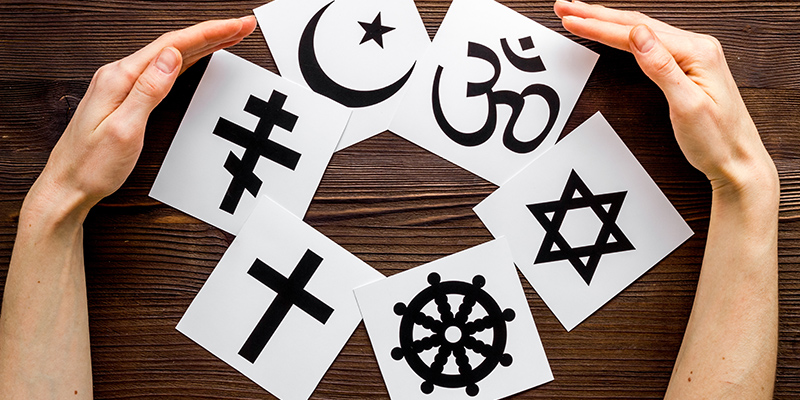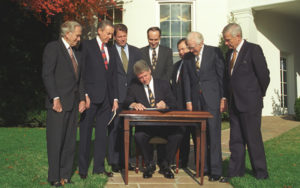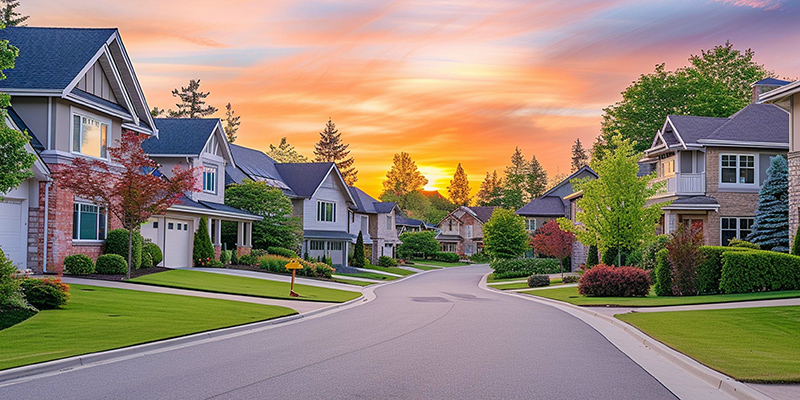HOA Religious Discrimination: What The BOD And Homeowners Should Know

HOA religious discrimination is a real issue that can affect communities nationwide. Boards should learn how to protect the association from discrimination claims, while homeowners should know their rights.
Browse By Category
Sign up for Our Newsletter
HOA religious discrimination is a real issue that can affect communities nationwide. Boards should learn how to protect the association from discrimination claims, while homeowners should know their rights.
What Is HOA Religious Discrimination?
Discrimination exists in many forms. In the case of housing providers such as homeowners associations, discrimination can stem from race, color, national origin, sex, family status, and disability. It can also stem from religion.
HOA religious discrimination is when an association treats owners of a certain religion unfairly. More often than not, such acts of discrimination take the shape of rules and regulations. A homeowners association that does not sell homes to Catholics, for example, is clearly discriminatory. A rule that bans a certain holiday ornament related to a religious faction, such as a menorah, is discriminatory as well.
HOA and Religion: What Does the FHA Say?
According to the federal Fair Housing Act, housing providers can’t discriminate against any person based on any of the following:
- Race
- Color
- National origin
- Sex
- Religion
- Familial status
- Disability
Under the FHA, homeowners and condo associations are considered housing providers. Should an HOA limit a person’s access to a home due to their religious beliefs, it is religious discrimination and in direct violation of the FHA.
Facially Neutral Rules
Of course, this does not mean a homeowners association can’t adopt a rule that just so happens to affect a member’s religion. A “facially neutral” rule that coincidentally interferes with religious practices is typically enforceable.
For example, if an HOA has a rule that prohibits any displays on a member’s balcony, a member who wants to display a religious symbol on their balcony generally can’t claim HOA religious discrimination. This is because the rule itself is facially neutral, which means it does not expressly approve or disapprove of religion.
On the other hand, a facially neutral rule can still violate the FHA. This happens when there is discriminatory intent behind a homeowners association’s decision to enact a rule. Homeowners, though, will usually need evidence to support their claim that there was an intent to discriminate.
Another way a facially neutral rule can breach the FHA is when the rule has a disproportionate impact on a certain religious group. The argument here is that the rule affects a protected class in such a disproportionate way that it is tantamount to discrimination. Again, this requires evidence to support the claim of discrimination.
The First Amendment and Religious Freedom Restoration Act
 Some homeowners might say that specific acts and rules violate the First Amendment or the Religious Freedom Restoration Act (RFRA).
Some homeowners might say that specific acts and rules violate the First Amendment or the Religious Freedom Restoration Act (RFRA).
These two statutes, though, apply only to government bodies. While homeowners associations operate much like a government, they are not considered as such under the eyes of the law.
However, there are exceptions to this. Several states have their own versions of the Religious Freedom Restoration Act (as well as the FHA). One case in Texas saw the court ruling in favor of a member who turned their residence into a synagogue — complete with several services taking place per day — even if it was in direct violation of the association’s bylaws. According to the court, under the Texas RFRA, the HOA was a quasi-governmental body.
Interestingly, a similar situation resulted in a different outcome elsewhere in Texas. In this case, the court ruled that the RFRA did not apply and upheld the association’s rules on religious services.
Should You Allow HOA Religious Practice?
With such diverse demographics, homeowners associations are filled with members who come from different backgrounds and hold different beliefs. Some are more expressive than others and may want to exercise their beliefs through religious services. Practicing religion in an HOA community is nothing new, though there are some things boards should keep in mind when it comes to the location of those practices.
In Common Areas
HOA communities typically have common areas that are perfect for large gatherings. Members may want to rent the space for a religious practice or service. A homeowners association may also violate the FHA if it only rents facilities to certain religious groups and not others. Should it want to ban religious activities, it must apply the rule uniformly regardless of the religion.
In Individual Units/Homes
A condo or homeowners association may not ban members from practicing religion alone in their own homes or units. Doing so would be in direct violation of the Fair Housing Act.
However, an HOA may have the ability to restrict owners from using their homes or units for anything other than residential purposes. In this case, an owner may not hold religious services in their home or unit, especially if it would mean opening the home to strangers or numerous guests. Hosting religious services would also involve parking and traffic issues as well as noise issues, which are considered nuisances.
Symbols and Decorations as HOA Religious Displays
In general, the rule on religious symbols should follow the provisions under the Fair Housing Act. An association must not discriminate against certain religious groups and apply rules equally to all owners. Again, facially neutral rules are acceptable so long as there is no intent to discriminate and no disparate effect.
Keep in mind that some states have their own sets of laws when it comes to the display of religious symbols. For instance, Texas recently amended its laws to prohibit HOAs from restricting the display of religious items. Previously, associations could limit the size and placement of such items. With the change, associations no longer have this power.
It is imperative that HOA boards check their state laws to avoid any liability. Consulting with an attorney is best. Similarly, homeowners should understand which restrictions are lawful and which ones are not. In this way, they can protect their rights.
All Things Said
The topic of HOA religious discrimination is certainly a contentious one, full of debate and controversy. Not all experts agree on the issue, and courts have ruled differently on separate occasions. Still, it will continue to be a subject of discussion, especially in managed communities. As such, it is important to make things clear from the start.
Juggling HOA rules with federal and state laws can come as a challenge. Boards can significantly make their jobs easier with the help of an HOA management company. Find the best one in your area today using our online directory.
RELATED ARTICLES:
- What Are Unenforceable HOA Rules? What To Do About Them?
- Early Christmas Display In HOA Community: Should Homeowners Be Fined?
- What Are HOA Restrictive Covenants?
Trending Now
Related Article
Sign up for Our Monthly Newsletter
Sign up below for monthly updates on all HOA Resource
















